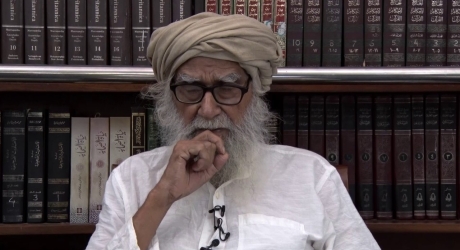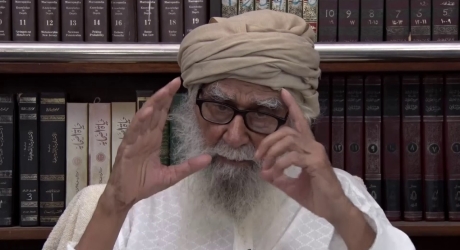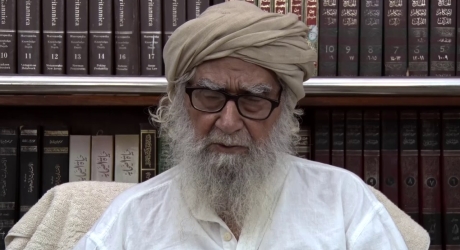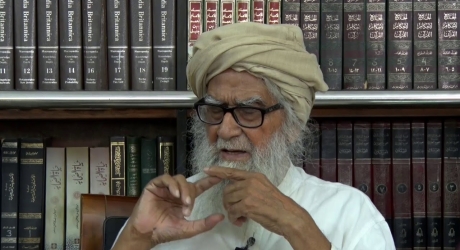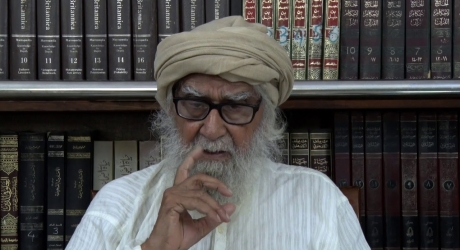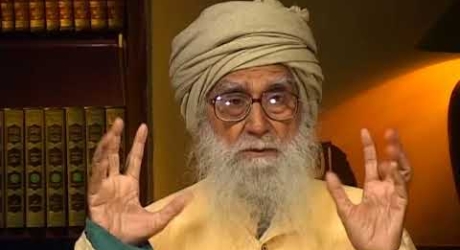It is not possible for you to offer Namaz full of spirit in a robotic manner. Such a Namaz will definitely have minor differences. Based on these differences, people developed entire schools of thought. However, these differences would still continue. They developed the principle of tarjih. Tarjih means to give preference, or selecting one method over all the others. I consider the principle of tarjih to be wrong. Every method has come down to us from a Companion. One Companion uttered the words Praise be to the Lord, while another uttered: Praise be to the Lord, much pure and blessed praise! One Companion said May the Lord be exalted, another said: Lord I bow for You, believe in You and place my trust in You. These differences we receive from the Companions are natural. There isn't anytihng wrong about them. These differences will remain. When your worship is full of life, it would lead to minor differences in form.
Once the Prophet was offering Namaz and his Companions were praying behind him. When the Prophet bowed down he said: Praise be to the Lord! A Companion then uttered from behind: رَبَّنَا وَلَكَ الحَمْدُ حَمْدًا كَثِيرًا طَيِّبًا مُبَارَكًا فِيهِ. (Sahih al-Bukhari 799) The Prophet had only said Praise be to the Lord, but one of his Companions said: Praise be to the Lord, much pure and blessed praise! After the Namaz, the Prophet asked who had uttered these words. Everyone was silent. They thought a mistake had been made. The Prophet asked repeatedly. The Companion who had uttered these words said that he had said so. The Prophet replied that angels came rushing to take those words. Angels came rushing to record those words.
These words were so pleasing to God. This means that when a person offers routine Namaz, he would only say: Praise be to the Lord. But when there is intense spirit in your Namaz and a storm wells up inside you, you utter many more words spontaneously. For example, consider ruku, or bowing down in Namaz.
When you bow down, you say: سبحان ربي العظم (May the Lord be exalted) This is the routine utterance. But once while offering Namaz, the Prophet said: اللهُمَّ لَكَ رَكَعْتُ، وَبِكَ آمَنْتُ، وَلَكَ أَسْلَمْتُ، خَشَعَ لَكَ سَمْعِي، وَبَصَرِي، وَمُخِّي، وَعَظْمِي، وَعَصَبِي. (Sahih Muslim 771) O God, I have bowed down for You. I have believed in You. I have surrendered to You. My ears, eyes, bones and organs have humbled before You. He said many more words other than the routine ones. It is not possible for you to offer Namaz full of spirit in a robotic manner. Such a Namaz will definitely have minor differences. Based on these differences, people developed entire schools of thought. However, these differences would still continue. They developed the principle of tarjih. Tarjih means to give preference, or selecting one method over all the others.
I consider the principle of tarjih to be wrong. Every method has come down to us from a Companion. One Companion uttered the words Praise be to the Lord, while another uttered: Praise be to the Lord, much pure and blessed praise! One Companion said May the Lord be exalted, another said: Lord I bow for You, believe in You and place my trust in You. These differences we receive from the Companions are natural. There isn't anytihng wrong about them. These differences will remain. When your worship is full of life, it would lead to minor differences in form.





